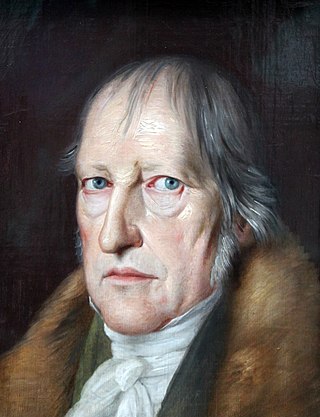
Georg Wilhelm Friedrich Hegel was a German philosopher and one of the most influential figures of German idealism and 19th-century philosophy. His influence extends across the entire range of contemporary philosophical topics, from metaphysical issues in epistemology and ontology, to political philosophy, the philosophy of history, philosophy of art, philosophy of religion, and the history of philosophy.
"Bruces' Philosophers Song", also known as "The Bruces' Song", is a Monty Python song written and composed by Eric Idle that was a feature of the group's stage appearances and its recordings.
Allan David Bloom was an American philosopher, classicist, and academician. He studied under David Grene, Leo Strauss, Richard McKeon, and Alexandre Kojève. He subsequently taught at Cornell University, the University of Toronto, Tel Aviv University, Yale University, the École normale supérieure, and the University of Chicago.

Johann Kaspar Schmidt, known professionally as Max Stirner, was a German post-Hegelian philosopher, dealing mainly with the Hegelian notion of social alienation and self-consciousness. Stirner is often seen as one of the forerunners of nihilism, existentialism, psychoanalytic theory, postmodernism and individualist anarchism.
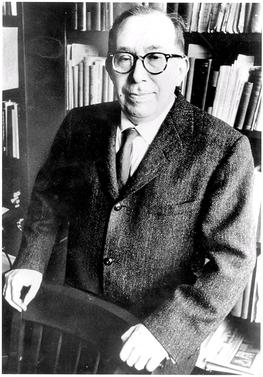
Leo Strauss was a 20th century German-American scholar of political philosophy who specialized in classical political philosophy. Born in Germany to Jewish parents, Strauss later emigrated from Germany to the United States. He spent much of his career as a professor of political science at the University of Chicago, where he taught several generations of students and published fifteen books.
Continental philosophy is a term used to describe some philosophers and philosophical traditions that do not fall under the umbrella of analytic philosophy. However, there is no academic consensus on the definition of continental philosophy. Prior to the twentieth century, the term "continental" was used broadly to refer to philosophy from continental Europe. A different use of the term originated among English-speaking philosophers in the second half of the 20th century, who used it to refer to a range of thinkers and traditions outside the analytic movement. Continental philosophy includes German idealism, phenomenology, existentialism, hermeneutics, structuralism, post-structuralism, deconstruction, French feminism, psychoanalytic theory, and the critical theory of the Frankfurt School as well as branches of Freudian, Hegelian and Western Marxist views. There is widespread influence and debate between the analytic and continental traditions; some philosophers see the differences between the two traditions as being based on institutions, relationships, and ideology rather than anything of significant philosophical substance.
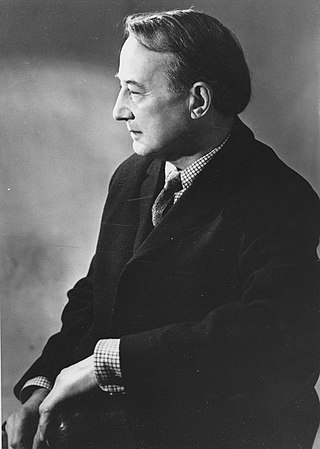
Michael Joseph Oakeshott FBA was an English philosopher and political theorist who wrote on the philosophies of history, religion, aesthetics, education, and law.
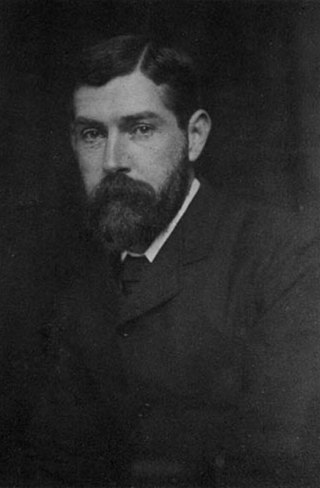
A subset of absolute idealism, British idealism was a philosophical movement that was influential in Britain from the mid-nineteenth century to the early twentieth century. The leading figures in the movement were T. H. Green (1836–1882), F. H. Bradley (1846–1924), and Bernard Bosanquet (1848–1923). They were succeeded by the second generation of J. H. Muirhead (1855–1940), J. M. E. McTaggart (1866–1925), H. H. Joachim (1868–1938), A. E. Taylor (1869–1945), and R. G. Collingwood (1889–1943). The last major figure in the tradition was G. R. G. Mure (1893–1979). Doctrines of early British idealism so provoked the young Cambridge philosophers G. E. Moore and Bertrand Russell that they began a new philosophical tradition, analytic philosophy.
Social philosophy examines questions about the foundations of social institutions, social behavior, and interpretations of society in terms of ethical values rather than empirical relations. Social philosophers emphasize understanding the social contexts for political, legal, moral and cultural questions, and the development of novel theoretical frameworks, from social ontology to care ethics to cosmopolitan theories of democracy, natural law, human rights, gender equity and global justice.

In the fields of philosophy, the terms obscurantism and obscurationism identify and describe the anti-intellectual practices of deliberately presenting information in an abstruse and imprecise manner that limits further inquiry and understanding of a subject. The two historical and intellectual denotations of obscurantism are: (1) the deliberate restriction of knowledge — opposition to the dissemination of knowledge; and (2) deliberate obscurity — a recondite style of writing characterized by deliberate vagueness.

Walter Arnold Kaufmann was a German-American philosopher, translator, and poet. A prolific author, he wrote extensively on a broad range of subjects, such as authenticity and death, moral philosophy and existentialism, theism and atheism, Christianity and Judaism, as well as philosophy and literature. He served more than 30 years as a professor at Princeton University.

A History of Western Philosophy is a 1946 book by British philosopher Bertrand Russell (1872–1970). A survey of Western philosophy from the pre-Socratic philosophers to the early 20th century, each major division of the book is prefaced by an account of the historical background necessary to understand the currents of thought it describes. When Russell was awarded the Nobel Prize for Literature in 1950, A History of Western Philosophy was cited as one of the books that won him the award. Its success provided Russell with financial security for the last part of his life. The book was criticised, however, for over-generalizations and omissions, particularly from the post-Cartesian period, but nevertheless became a popular and commercial success, and has remained in print from its first publication.

Laurence Lampert is a Canadian philosopher and a leading scholar in the field of Nietzsche studies. Philosopher Michael Allen Gillespie of Duke University has described Lampert as "North America's greatest living Nietzsche scholar." He is also well known for his interpretations of Plato and the German-American political philosopher Leo Strauss.
Robert Buford Pippin is an American philosopher. He is the Evelyn Stefansson Nef Distinguished Service Professor in the John U. Nef Committee on Social Thought, the Department of Philosophy, and the college at the University of Chicago.
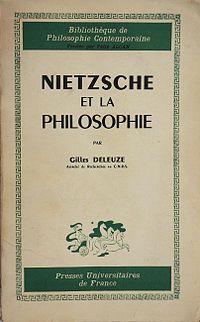
Nietzsche and Philosophy is a 1962 book about Friedrich Nietzsche by the philosopher Gilles Deleuze, in which the author treats Nietzsche as a systematically coherent philosopher, discussing concepts such as the will to power and the eternal return. Nietzsche and Philosophy is a celebrated and influential work. Its publication has been seen as a significant turning-point in French philosophy, which had previously given little consideration to Nietzsche as a serious philosopher.
Ivan Soll is an American philosopher who is a Professor Emeritus in the Department of Philosophy at the University of Wisconsin–Madison in the United States. He taught at UW from 1965 until his retirement in May 2011. His teaching and research focused on the philosophy of Friedrich Nietzsche, German philosophy in general, existentialism, aesthetics, and various figures of continental philosophy.

Patrick Thomas Riley was Michael Oakeshott Professor of Political Science at the University of Wisconsin-Madison. He is notable for his translations of the political writings of Gottfried Leibniz and his research on social contract theory, the general will, and the history of universal jurisprudence.
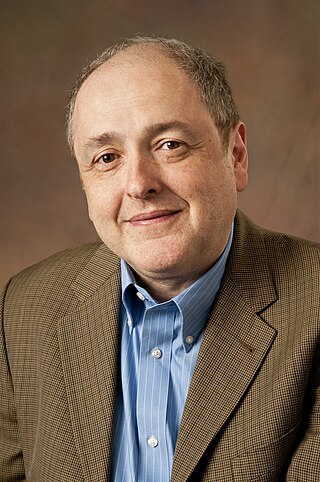
Brian Leiter is an American philosopher and legal scholar who is Karl N. Llewellyn Professor of Jurisprudence at the University of Chicago Law School and founder and Director of Chicago's Center for Law, Philosophy & Human Values. A review in Notre Dame Philosophical Reviews described Leiter as "one of the most influential legal philosophers of our time", while a review in The Journal of Nietzsche Studies described Leiter's book Nietzsche on Morality (2002) as "arguably the most important book on Nietzsche's philosophy in the past twenty years."
Michael Allen Gillespie is an American philosopher and Professor of Political Science and Philosophy at Duke University. His areas of interest are political philosophy, continental philosophy, history of philosophy, and the origins of modernity. He has published on the relationship between theology and philosophy, medieval theology, liberalism, and a number of philosophers such as Nietzsche, Hegel, Heidegger, and Kant.











